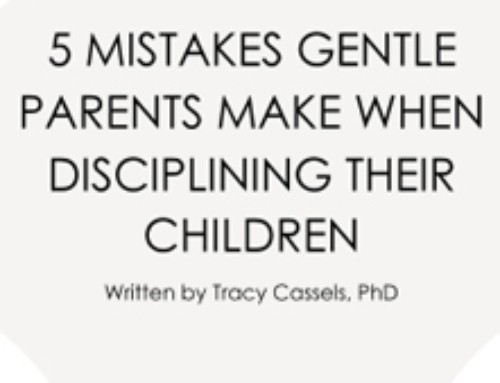
We’ve probably all been told that we can’t go back once we’ve started something with our kids. It may be something we said no to, but it can also be when we’re trying to make a change that they are resisting. Take, for example, the parent who said no to getting in the tub with their child and the child just keeps asking over and over. Most of us buy into the idea that once we have made up our minds about something and set our course, we have to stick to it. Giving in, or going back, is giving up our power, look “weak”, or something like that. If we want our kids to respect us and move forward, we need to stick to our guns.
Except we don’t.
Let’s start with the first issue of giving in once we’ve said “no”. Now, I want to be clear that I am not advocating that you give in all the time or even without good reason, but I do want to open up the idea that giving in does not mean instant disaster. In fact, quite the opposite. Sometimes we say no without thinking about it, or we see that we’ve said no to something that really means a lot to our kids. In these cases, reversing course is actually a way of showing our children that we are responding to them. We are showing them that they have a voice after all.
Think about a child who may have asked to have their parent join them in the tub. If there is no real reason to say no and the parent has changed their mind about not wanting to, then there is no good reason not to backtrack. We think our kids will assume they can run all over us if we suddenly “give in”. I like to think of it differently. I think we show our children a very important skill: that they can sometimes affect change if it means enough to them and others are willing to go along.
On the flipside, when we dig our heels in no matter what, we are teaching our children a version of learned helplessness. That no matter what it is, we will never budge or change. This can have negative consequences when our children are older. It might mean that when our kids are older and may want to go to a party, if they assume we will say no, they will simply find a way to sneak out instead of learning how to make their case to us. It also means that they may not respect the “no”s that we give, assuming they are all unfair. In contrast, when we show them we can change, they are more likely to believe our “no”s have reasoning that we can explain. It’s not 100% foolproof, but it definitely can make the later years easier.
Now what about the child who is experiencing a change? I think here of situations like night weaning or starting daycare. We often push our kids to a certain degree and the idea is they just have to keep moving forward. Stepping back will mean the unraveling of all that has been done; give an inch and they’ll take a mile, is what you’ll be told. But this begs the question: How is this type of forward progress a sign of responsiveness? How are we showing our children that we are responding to their individual needs and emotions if all we do is feel we need to plow forward?
It’s important to realize that parents don’t think about stepping back for no good reason. A child that is adapting to change well rarely has a parent think, “Oh, better step back! He’s doing too well!” No, the parents who consider stepping back consider this because they see that things are not going well. They may have children who are becoming highly distressed all the time or during these transitions, they may see stress behaviours coming out more frequently, they may feel like they are struggling themselves because of the intense backlash from their child.
If this were a partner, we would think the parent inconsiderate for plowing forward without consideration of their partner’s feelings, so why not the child? Why would we not ask a parent to consider the well-being of their kids? Isn’t this what responsiveness is about?
Thus, when we have families facing these types of situations, we have to be clear that being responsive to what you see in your child is not regressing or giving in. It’s listening. It’s responding. It’s sensitivity. These are crucial elements to parenting and crucial to building attachment and trust in the long-term. It may feel like a step back in terms of the change that is happening, but actually it can also be viewed as a huge step forward in terms of your child feeling heard and respected, things that will help move your relationship forward.
There’s another benefit to stepping back similar to that of being willing to “give in”, namely that when our kids are older, they know that when they feel uncomfortable in situations, you will listen. You won’t force them through which would likely lead to them suffering in silence and not speaking to you. Teens can struggle with a lot and they can face immense emotional ups and downs and knowing they can come to you about these emotions and know you will respond with sensitivity is important. It gives them a security net as opposed to asking them to internalize these things, which can lead to a host of mental health issues.
People often complain about how their older children shut them out, but some of that can come from our own failure to listen when they were younger. Let’s change that and know that giving in and regressing in change are not inherently bad things, but can actually be positive tools to help us in our relationships with our children.






[…] Why you should sometimes change your mind after saying ‘no’. I follow this advice personally. My son Viktor only knows a few words and therefore has a hard time expressing preferences without crying. A strict ‘no giving in to crying’ rule would basically mean I couldn’t reassess my decision based on the strength of Viktor’s desires. I am probably going to enforce a ‘no giving in to tantrums’ rule once he’s old enough to express preferences with words, but until then ignoring his communication just seems unethical. […]
Thank you for another quality article, Dr. Cassels! I completely agree. And you know what, sometimes I’m wrong! lol. Sometimes I need to change my mind and my daughter shows me that with her persistence. Not being responsive is simply power-tripping. Let’s not repeat the mistakes of the previous generations! Thanks again love!
You put words to a thought I’ve been having as my kids get older… hearing their desires and “giving in” isn’t, indeed “giving in”, rather it is teaching them the important lesson that they have a voice and can influence change when using it, that relationship boundaries are healthy when they are firm and flexible rather than rigid or nonexistent, and that I am willing to see and hear and know them rather than simply convey or demand my own preferences. Love your work!
Yes! This is exactly it. We want our kids to have agency – they NEED it – but they can only have it if they learn how 🙂
Thank you! I’ve thought about this and can’t imagine being a different way. I wouldn’t treat other people like that, so why would I treat my child like that? This is very validating!